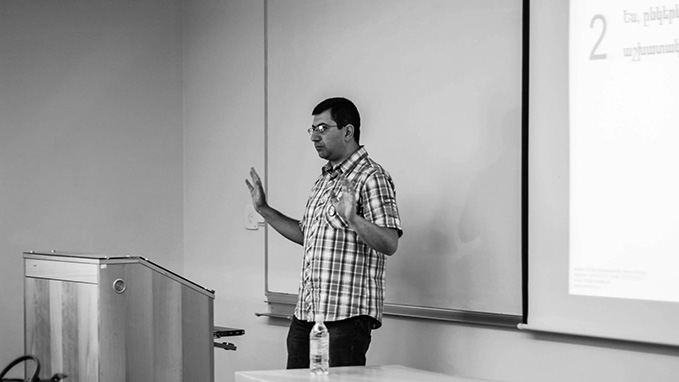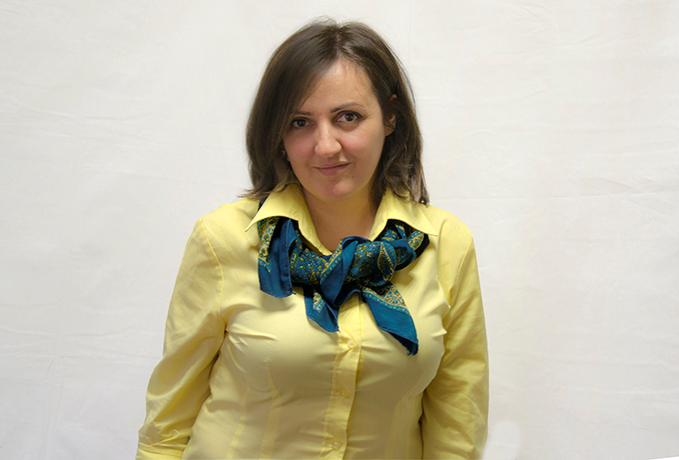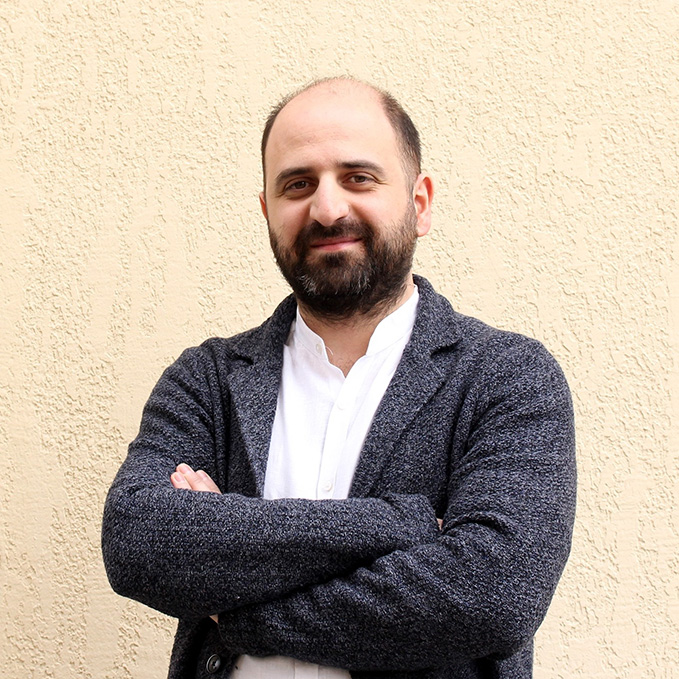
Digital Caramel, CEO Arsen Sultanyan
Digital Caramel is the first native network advertising in Armenia that has already expanded its services far beyond Armenia, including Russian, CIS, Western and Asian countries. The company offers high rates and broad opportunities for re-targeting as well as giving unique creative solutions. Arsen Sultanyan, the CEO of Digital Caramel agency, has years of experience in local and international markets, anti-crisis strategies successfully functioning, and a clear vision for the future.

Let me first talk about the effects of the coronavirus in our company. At the moment, it still has a negative impact on business. You see, as we are engaged in online advertising technologies, our turnover is directly proportional to the advertising activity and overall activity of companies. When the growth rate of coronavirus increases, the country begins to impose some restrictions on various businesses, thus bringing the activity of the sector to a minimum. Our company substantially depends on the activity of the Russian market and the countries of CIS, and alongside the restrictions, we had a slowdown in growth rates as well. We still have progressed but at a very slow pace, and the reason is a coronavirus. For example, Moscow has recently applied severe restrictions; the activities of some businesses have been restricted or eliminated until the rate of infection decreases. This inactivity badly affects our business.
November and December are considered the top months in the world of advertising, and advertising companies have the highest profit during these two months. What we have now is November with previous months’ activity, and no growth was noticed at all. It is a vivid example of how the coronavirus has affected businesses.
How did the war affect business?
As the activity of our business in Armenia is minimal, we mainly work on the markets of Russia and the CIS countries, and to some extent in the Western markets, the war did not have a direct impact on our business. The only difficulty in the work process was the moral and psychological aspects. It was quite difficult to focus on work, most of the working time was spent on retrieving, analyzing, and discussing the news. Low productivity and time lost brought to the slowing down of the working process. During those 45 days and in the post-war period, we still could not return to regular work. At this moment, fortunately, I can say that we managed to focus on tasks and to return to regular work.
What is my vision for the future?
We have plans to expand the geography of our activity, by offering our services to foreign countries’ markets to reduce the dependence on the CIS countries. In this respect, we will have both diversification and profit.
What are the mechanisms the state may use to support the business?
As for the effects of the war on the country's economy and its future steps, I think it is obvious to all of us that it is necessary to develop education and science, which will have a direct impact on the development of the military industry. The goal should be to strengthen Armenia, which means a strong military industry, production of modern military equipment. In this regard, there are several important steps to achieve the goal. For example, to exempt military companies from all types of taxes, so that investments in this area become more profitable not only for people with patriotic motives but also for people with a business mindset. The military industry should be considered a successful business that will be able to produce modern equipment not only for Armenia but also for export. Exemption from customs clearance of imported raw materials for domestic production of military equipment will also be a significant impulse for the development of the sector, allowing imports not only from Eurasian countries but also from other countries. Of course, this may be a wish, as the import of such goods from other countries may be prohibited; this goal can be achieved through diplomacy.
No less important factor for the development of the military industry is the development of science. With the demand for technological solutions and ready-made solutions for the military industry, it is clear that IT science needs to be developed to later apply those solutions effectively. For example, we need video recording for drones, effective video transfer to the control point, fixation of targets, and every single step all has to do with science. If a scientist does not have the resources to find new methods and technologies or to implement existing technologies, the field will not have the opportunity to develop. Different groups of scientists, having innovative solutions, can contribute to the development of the military industry, and consequently, to the stabilization of the country and the growth of the economy.
Arara Tour, Executive Director Nune Tatunts
Armenia-based company Arara Tour for already seven years has been receiving guests and organizing tours in the South Caucasus and Central Asia. As creative pioneers, they continue expanding the services and providing travelers with the best choice for a holiday. By supporting the local partners, food, transport, and accommodation suppliers, Arara Tour has a strong contribution to the development of small and medium enterprises.

The tourism sector worldwide has been badly affected by months of lockdown and coronavirus. With hopes to regain stability and bring back the business to normal, the company and the whole country faced another disaster. The executive director of Arara Tour Nune Tatunts has shared the insights of changes that business faced, as well as visions, and plans for the nearest future.
With the rates of coronavirus slowly getting lower, there seemed to be little activity in the tourism sector. As an inbound tour operator, we are hosting guests from abroad, and the activity was reflected in the increase in site visits and travel inquiries.
How did the war affect business?
The tourism sector is the most sensitive field, any instability in the country directly affects it. People avoid traveling to countries where it is not safe. Official websites of many countries, particularly the United States and Great Britain, have issued warnings about the danger of traveling to Armenia. The interest in our country has decreased, and until we gain final stability and peace, there will be no activity in tourism even after the vaccine is approved.
What is your vision in the business sector in Armenia?
During a crisis, the main task of any company is to mobilize all the resources and direct them to the development and correction of qualitative and organizational gaps. Arara Tour follows this rule, and now we are working on mitigating the damage caused by the war and pandemic. To my mind, most companies and start-ups will close down, not having a working anti-crisis strategy, and only the most resilient companies will survive the crisis. For the next year, we will be able to serve the tourist flow with the existing infrastructure. The business sector will have a problem with qualified employees, as we require the knowledge of foreign languages, hard and soft skills. In terms of the tourist flow, 2021 can be an active year as people who were under lockdown for over a year and could not travel will definitely plan to travel after vaccination. About 70% of our sales have agreed to postpone the trip until 2021. In other words, if next year is peaceful in the region, the expected tourist flow of 2020 will be maintained”.
What are the mechanisms the state may use to support the business?
“The government is facing a huge problem in the post-war period. Priority fields with high profit, that have currency income through the exports, should be identified as soon as possible. The next important step is the changes in the Tax Code; it will stimulate investments in the newly selected priority fields. If possible, the government should direct public capital expenditures to these areas to ensure economic activity. The advantage should have production, processing, high technologies, and tourism. In all these areas, the emphasis should be on exporting the local products as well as promoting them on the local market”.
To what extent can economic destabilization affect medium and small businesses?
“For a while, people will feel insecure because they have no idea what to expect. People will start spending less and saving more. In such a critical situation and economic crisis threatening to become a long term collapse, it is utterly important to develop exports as the purchasing power of the global market is much higher and the opportunities are greater than in the local market”.
Rumors LLC, CEO and Co-Founder Mushegh Gevorgyan
Rumors Monitoring, the largest online media database, offers highly relevant media monitoring with interactive and tailored solutions to easily manage brand reputation and define new ways to understand and communicate with your audience. Being trusted by governmental and non-governmental organizations, local and international companies, Rumors Monitoring is a valuable asset for the country. In these troubled times, it is important to find out how the company is going through the crisis, and what the plans are for the future. Our interlocutor is Mushegh Gevorgyan, CEO and Co-founder of Rumors, who’s shared his thoughts about the current situation.

The pandemic affected all sectors of the economy, and the IT-sphere was no exception. The outsourcing companies, working with international partners, suffered the most. We know that most of the Armenian IT companies are in the outsourcing business. As for Rumors Monitoring, besides providing similar services, our organization is also engaged in the development of its own product, which made it possible to overcome the crisis, as there were no major losses in this regard. Moreover, there were cases when the pandemic had a positive impact on a number of local organizations developing Armenian products. Coronavirus once again proved that Armenia, considering IT as a priority sphere, should change the vector direction, keeping the focus on creating products, rather than simply selling its talent to international companies. We have already noticed this tendency for the last five years, and new successful product-development organizations are being established in the Armenian IT community.
How did the war affect business?
“In the event of a war, we all need to focus more on the conclusions. The war showed that the IT potential and power concentrated in Armenia, or in general among the Armenians, does not correspond to the level of our military industry, at least in terms of weapons requiring technological solutions. Of course, this does not mean that the entire IT community should be involved in the military industry. Companies should continue their normal activities, develop and increase financial flows. Still, in my opinion, from now on, every IT specialist, if possible, should devote 10% of his time to solving this problem, i.e., try to find modern solutions to develop the military industry. In the case of long-term solutions, like correct consolidation and management, new companies will be created which instead of producing 5th generation weapons, will think one-step ahead and come up with competitive solutions”.
What are the mechanisms the state may use to support the business?
“In general, our country should create a healthy environment and attractive conditions for business. Such conditions can be real in non-crisis days, while in the current situation, the state should immediately implement crisis management. I’m not an expert, and I cannot create a clear map for efficient crisis management but one thing is obvious, the state should make the correct distribution of the budget, invest in the areas of the great potential that have suffered the most from both the pandemic and the war”.
Does rebuilding affected business require more resources than launching new pilot projects?
“In my opinion, any business should have both short-term and long-term anti-crisis strategies and solutions to survive a crisis. In the case of a short-term solution, the company will need resources to keep the business “alive” for the next 6-12 months. During this period, the business must analyze the changes in the market and, if necessary, undergo a transformation to adjust to the changes. We are witnessing several mega corporations in tourism are changing. One example is Airbnb, where venture capital funds invested about $ 1 billion to mitigate the risks of coronavirus exposure. As I have already mentioned, in the case of small and medium enterprises in Armenia, that role should be taken over by the state itself, as there are no other large-value funds in Armenia”.
ProDigi, Ceo & Co-Founder Aida Vopyan
With more than eight years of experience in digital marketing, ProDigi company provides full digital marketing services worldwide. A high-skilled team of professionals works hand in hand, creating successful marketing campaigns in digital advertising, SMM, video production and more. Just like any other company, they have become a part of the dramatic events in Armenia, and Aida Vopyan, Ceo and co-founder of ProDigi, shared her experience of how they have gone through the crisis and how they imagine the future in Armenia.

“2020 can be considered a year of tough tests and unplanned developments for the business sector in Armenia, that started with the Covid pandemic. In general, from a business point of view, the businesses faced two main problems. The first one was to ensure the safety of employees, and here the best solution was to switch to remote work, which most of the companies had not been ready to. The second problem was to make sure the business would bear the least financial loss. Before the war, our organization had been able to overcome these two problems and organize a stable and effective remote working process”.
How did the war affect the business?
“The worst thing about facing the war was the emotional part. It was very difficult to concentrate and rationally assess the situation we have faced and to continue the working process. Yet, we realized that we could hardly influence reality objectively by not working. In the end, we managed to direct our emotions and the desire to support our country helped us the most. For 24/7 we used the resources to "export" our services and intellectual resources outside Armenia. During the war, the biggest motivation for us was the fact that our partners from all over the world (Singapore, England, America, Canada) expressed their desire to support us and Armenia. As for the forecasts of the future and vision, our organization will continue to develop the field of digital marketing in Armenia and work on making Armenia one of the top countries in the world with digital marketing services. The current reality we are living in forced us to re-evaluate our values and direct the potential to other countries with the plans of bringing the money to Armenia”.
What are the mechanisms the state may use to support the business?
“It should be mutual support. I mean, the business should also support its country to overcome the crisis. The business should have a strategy to survive in any situation. If not, even multiple state support won’t help the business to recover. On one side, the business should not wait for support, on the other side, the country should create motivation and an environment for business development. At this moment, the businesses that contribute to the development and strengthening of Armenia in IT, military, education, etc. Those are the key fields that should have an advantage”.
To what extent can economic destabilization affect medium and small businesses?
“The impact of the economic destabilization and crisis depends on the flexibility of small and medium-sized businesses, the ability to assess risks, and the desire of the business to "live". I think if a business wants to "live", it should find an opportunity and resources in any situation”.

